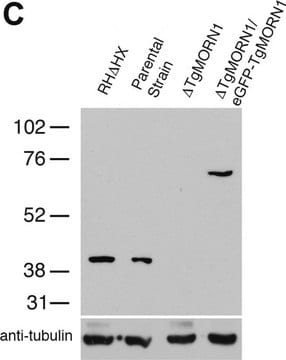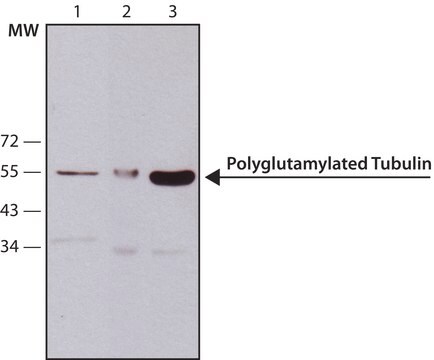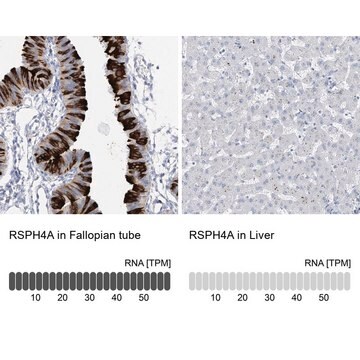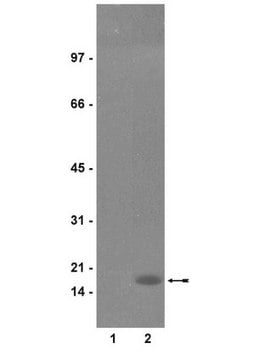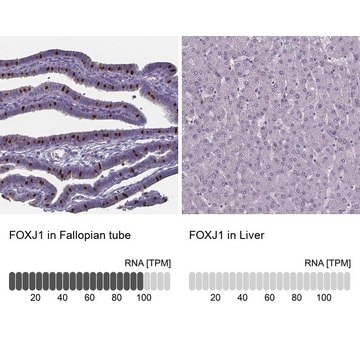T6793
Monoclonal Anti-Tubulin, Acetylated antibody produced in mouse
clone 6-11B-1, ascites fluid
Sinónimos:
Anti-ALS22, Anti-H2-ALPHA, Anti-TUBA1
About This Item
Productos recomendados
biological source
mouse
Quality Level
conjugate
unconjugated
antibody form
ascites fluid
antibody product type
primary antibodies
clone
6-11B-1, monoclonal
contains
15 mM sodium azide
species reactivity
mouse, protista, invertebrates, hamster, plant, frog, rat, monkey, pig, bovine, chicken, human
technique(s)
dot blot: suitable
electron microscopy: suitable
immunocytochemistry: suitable
indirect ELISA: suitable
radioimmunoassay: suitable
western blot: 1:2,000 using a bovine or rat brain preparation
isotype
IgG2b
UniProt accession no.
application(s)
research pathology
shipped in
dry ice
storage temp.
−20°C
target post-translational modification
unmodified
Gene Information
human ... TUBA4A(7277)
mouse ... Tuba1a(22142)
rat ... Tuba1a(64158)
General description
Specificity
Immunogen
Application
- immunofluorescence.
- western blotting.
- immunocytochemistry.
- immunohistochemistry.
Biochem/physiol Actions
Disclaimer
¿No encuentra el producto adecuado?
Pruebe nuestro Herramienta de selección de productos.
Optional
Storage Class
10 - Combustible liquids
wgk_germany
WGK 3
flash_point_f
Not applicable
flash_point_c
Not applicable
Certificados de análisis (COA)
Busque Certificados de análisis (COA) introduciendo el número de lote del producto. Los números de lote se encuentran en la etiqueta del producto después de las palabras «Lot» o «Batch»
¿Ya tiene este producto?
Encuentre la documentación para los productos que ha comprado recientemente en la Biblioteca de documentos.
Los clientes también vieron
Artículos
Microtubules of the eukaryotic cytoskeleton are composed of a heterodimer of α- and β-tubulin. In addition to α-and β-tubulin, several other tubulins have been identified, bringing the number of distinct tubulin classes to seven.
Nuestro equipo de científicos tiene experiencia en todas las áreas de investigación: Ciencias de la vida, Ciencia de los materiales, Síntesis química, Cromatografía, Analítica y muchas otras.
Póngase en contacto con el Servicio técnico



